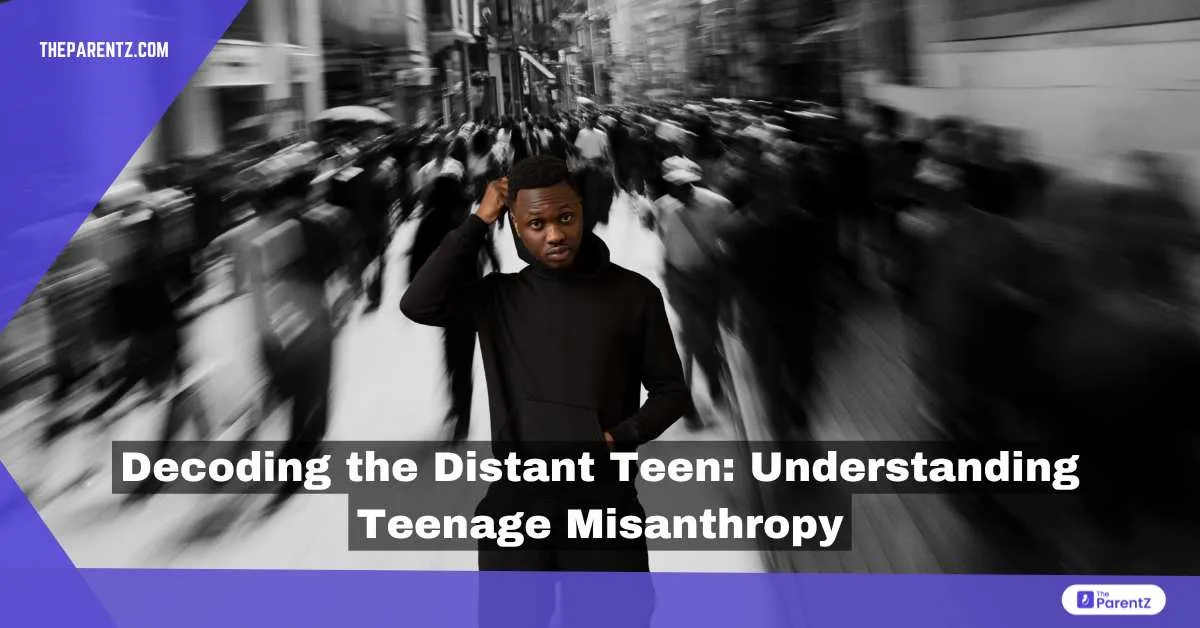Picture this: You're sitting across from your teenager, trying to start a conversation, and all you get is a wall of silence, a dismissive grunt, or an eye roll so profound it seems to contain entire universes of unspoken frustration. The distance between you feels like an uncrossable canyon, wide and deep. Welcome to the landscape of teenage misanthropy—a terrain as old as human civilization and as complex as the developing teenage brain.
What is Misanthropy?
Let's break down the term: Misanthropy is a generalized dislike, distrust, disgust, contempt, or hatred of the human species, human nature, or society. A misanthrope is one who hates or distrusts humankind.
Now, before you panic and think your teen is turning into a supervillain, it's important to understand that teenage misanthropy rarely presents as outright hatred. More often, it's a subtle but pervasive cynicism, a withdrawal from social interaction, and a general disillusionment with the world around them.
A Historical Perspective
Interestingly, the concept of misanthropy isn't new. Ancient Greek and Roman societies were already wrestling with understanding individuals who chose self-imposed isolation. They viewed such behavior as so aberrant that it was frequently categorized as a form of mental illness or madness.
Take, for example, the legendary figure of Timon of Athens—a historical character who became a literary archetype of the misanthrope. Depicted as someone who actively avoided human contact and surrounded himself with metaphorical "prickles and thorns," Timon represents an extreme version of the social withdrawal that many teenagers experience.
Why Do Teens Become Misanthropic?
Several critical factors contribute to teenage misanthropy:
- Identity Formation: Adolescence is a time of intense self-discovery. Teens are trying to figure out who they are, what they believe in, and where they fit in the world. This process can be incredibly challenging, especially when they encounter societal expectations and pressures that clash with their own values.
- Disillusionment: Teenagers are becoming increasingly aware of the world's problems: inequality, political polarization, environmental degradation, and more. This exposure can lead to cynicism and a feeling that humanity is inherently flawed.
- Social Media Overload: The constant barrage of curated images and highlight reels on social media often creates unrealistic expectations and fuels feelings of inadequacy. Comparing themselves to others can lead to resentment and distrust of the seemingly perfect lives they see online.
- Generational Gaps: Let's face it: the world our teens are growing up in is vastly different from the one we experienced. The issues they face, the technology they use, and the social norms they navigate are often foreign to us. This generational gap can create misunderstandings and make it difficult for parents to truly empathize with their teens' struggles.
The Medical and Psychological Lens
Ancient medical texts viewed extreme social withdrawal as a potential symptom of mental health conditions like melancholia. While we now understand teenage behavior more nuancedly, there's still merit in recognizing that persistent social isolation can be a sign of underlying emotional issues.
Modern psychology suggests that teenage misanthropy isn't a disorder but a potential coping mechanism. It's a way for adolescents to:
- Establish personal boundaries
- Process complex emotions
- Develop a sense of individual identity separate from family and societal expectations.
Signs Your Teen Might Be Struggling
How can you tell if your teen's behavior is more than just typical teenage moodiness? Here are some signs to watch out for:
- Social Withdrawal: They consistently avoid spending time with friends and family, preferring to isolate themselves.
- Cynical Outlook: They express a negative and pessimistic view of the world, often focusing on the flaws and shortcomings of others.
- Distrust of Authority: They question and challenge authority figures, often with a critical or sarcastic tone.
- Lack of Empathy: They seem indifferent to the suffering of others, displaying a lack of compassion or concern.
- Disengagement: They lose interest in activities they once enjoyed and struggle to find motivation in their lives.
It’s important to note that these behaviors don’t necessarily mean your teen hates humanity; they could be grappling with feelings they don’t yet know how to articulate.
How Can Parents Help?
If you suspect your teen is struggling with misanthropic feelings, here's what you can do:
- Listen Without Judgment: Provide a non-judgmental space for your teen to express their thoughts and emotions. Resist the urge to interrupt, criticize, or dismiss their concerns. Just listen and try to understand their mindset.
- Validate Their Feelings: Always acknowledge that their feelings are valid, even if you don't agree with them. Let them know that it's okay to feel angry, frustrated, or disillusioned with the world.
- Seek to Understand: Take the time to learn about the issues that are causing your teen distress. Research the topics they care about, watch documentaries, and engage in open and honest conversations.
- Find Common Ground: Look for areas where you can connect with your teen. Share your own experiences and challenges, and try to find common interests or values.
- Encourage Positive Outlets: Help your teen find healthy ways to channel their frustrations and negative emotions. This could include creative activities, exercise, spending time in nature, or volunteering for a cause they believe in.
- Consider Therapy: If your teen's misanthropic feelings are severe or persistent, consider seeking professional help. A therapist provides support, guidance, and coping strategies to help your teen handle their emotions and develop a more positive outlook.
It's Not Just "Being Antisocial"
Critical distinction: Teenage misanthropy is not a choice or a simple phase. It's a complex psychological response that requires understanding, not punishment. These teenagers aren't being deliberately difficult—they're navigating an incredibly complex emotional landscape.
Conclusion
It's important to remember that teenage misanthropy is often a symptom of deeper underlying issues. By understanding the causes and recognizing the signs, you can take steps to connect with your teen, address their concerns, and help them develop a more balanced and hopeful perspective on the world.
Approach with compassion. Your teenager isn't rejecting you—they're in the process of understanding themselves and the world. Each grunt, each moment of silence, is a complex communication, a piece of an ongoing emotional puzzle.








Be the first one to comment on this story.